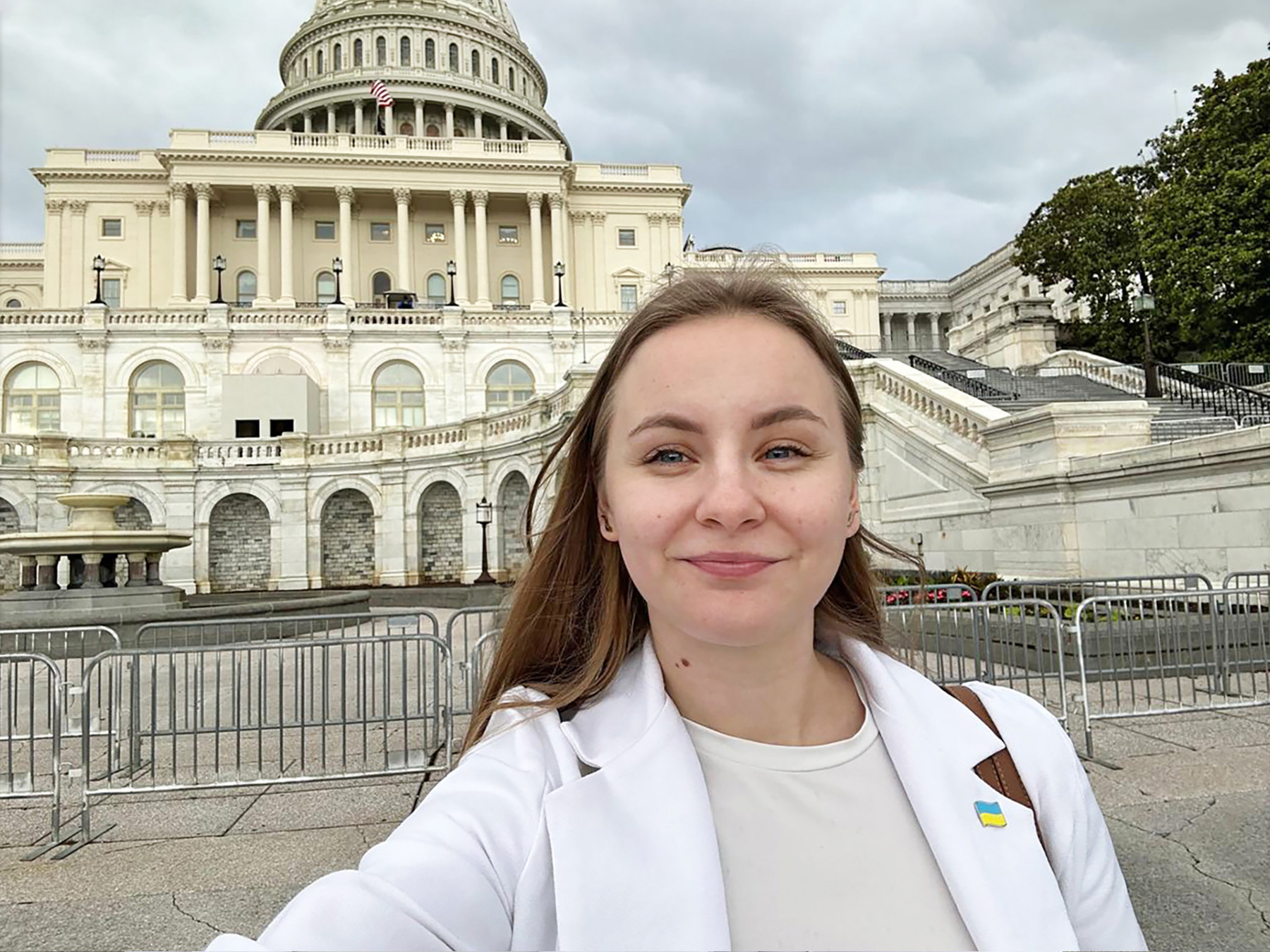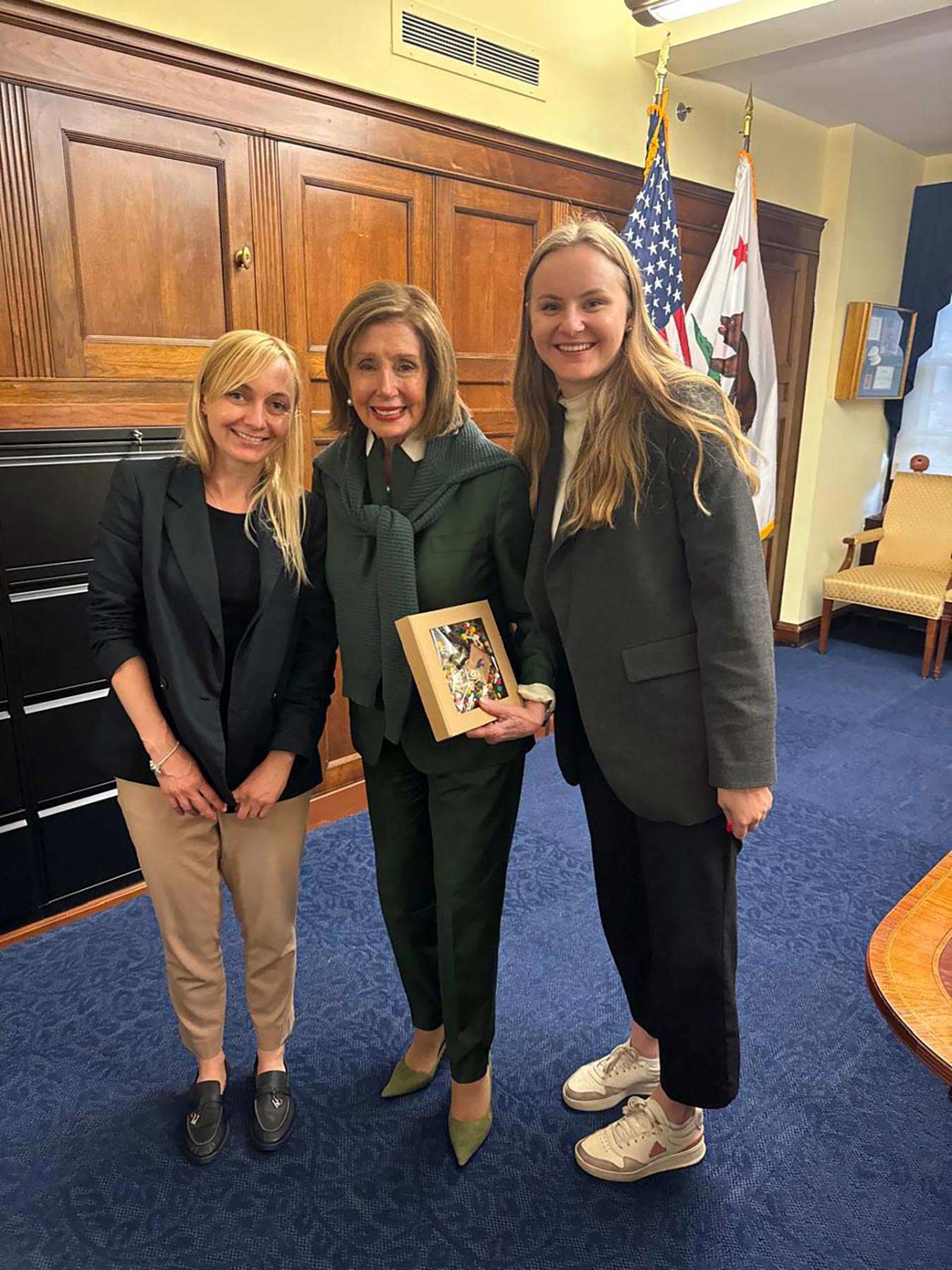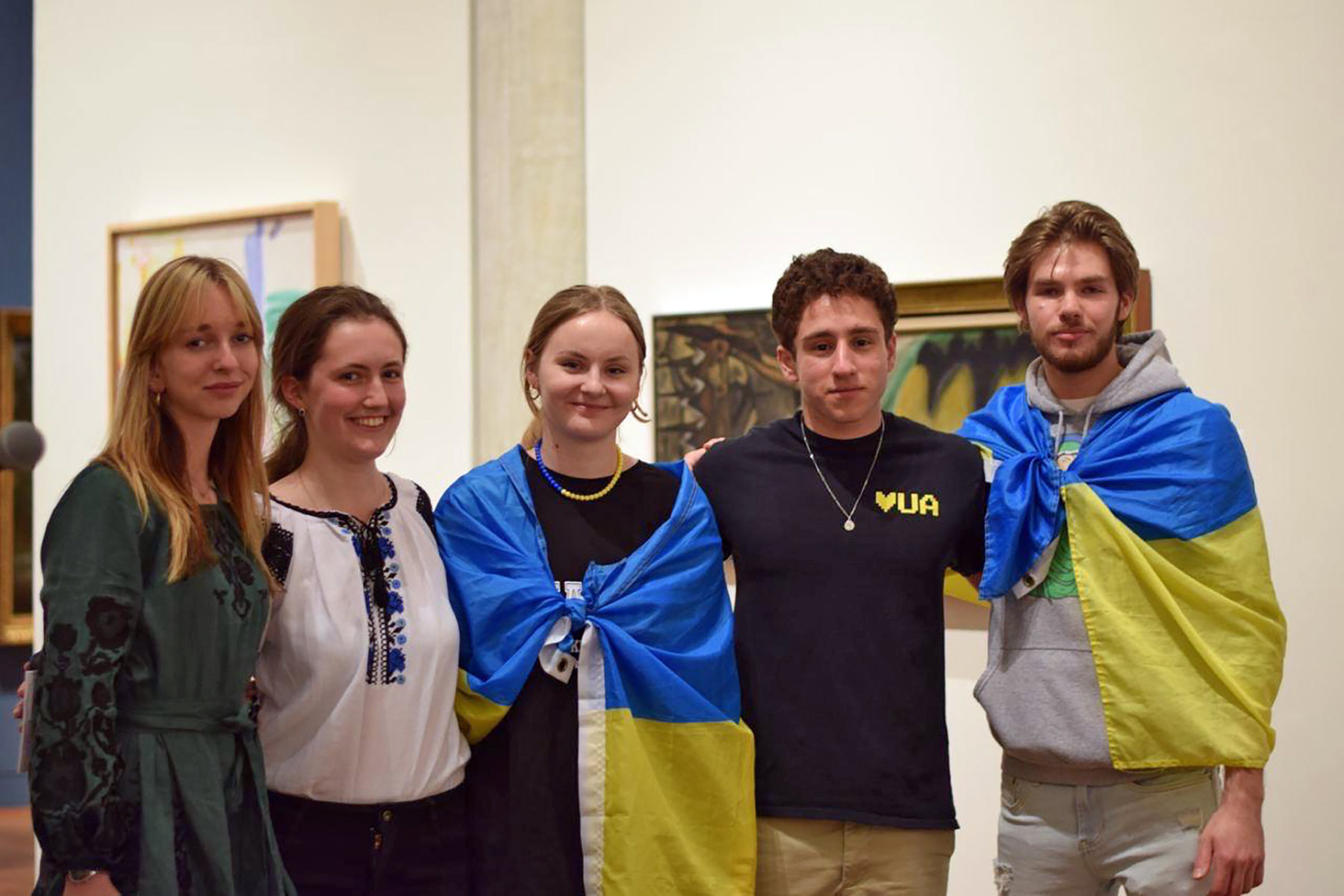Making a Difference in the War in Ukraine
Marina Hrytsenko ’23 celebrated her 21st birthday on February 23, 2022 while spending the second semester of her junior year in London in an academic and social justice program run by Boston University and co-sponsored by Vassar. “It was a wonderful day in London,” she recalled, “and I felt incredibly happy and fulfilled.”
Hrytsenko had visited her family in Ukraine three days earlier, and there had been talk of an imminent Russian invasion. And on the evening of her birthday, her boyfriend had called her from Ukraine and told her Russian President Vladimir Putin had issued a statement ordering the skies closed to civilian aircraft near the Ukraine border. “My boyfriend was very alarmed, but I was so happy in my birthday mood that I told him there was no need to worry—a war like that just could not happen in the 21st century,” she said.

Two hours later, the shelling and bombing began in her family’s hometown of Kharkiv. Hrytsenko says she thinks she must have sensed what was happening because she woke up at 5 a.m. and looked at her phone. “I had around 40 missed calls, and I saw a text message from my boyfriend: ‘Kharkiv is being shelled. I can’t reach you. Your parents are alive.’”
Hrytsenko tried to call everyone in her family, but no one replied. “All I could see were news and photos of my home being bombed and invaded,” she said. “I didn’t know then, but my dad (a lieutenant colonel in the Ukraine Air Force) was already fighting, my grandparents’ town was getting occupied, and my mom and sister were hiding in a shelter. All I could do was go to protests, but I mostly felt numb.”

Hrytsenko returned to the Vassar campus for her senior year that fall, but she had already resolved to move back to Ukraine to help in the fight. And a few months after she graduated, she secured a position as a foreign policy adviser to a leader of the Ukraine Parliament, Oleksandra Ustinova. The work has been challenging and demanding, but Hrytsenko has experienced some tangible successes. She was part of an eight-member delegation of Ukrainian officials who visited Washington, DC from May 13 to 17 to lobby for permission to use U.S. weapons to strike at targets inside Russia. Two weeks later, President Biden issued such an order.
How has this 23-year-old managed to rise to such an important position in Ukraine’s fight for its freedom? Hrytsenko credits her Vassar education. “From year one at Vassar, I knew I wanted to return to Ukraine,” she said, noting that she had secured internships in Ukraine during all Vassar breaks. “By my senior year, I knew I wanted to use this powerful and amazing education to do some work at home that would make a difference.”
Because the United States is one of Ukraine’s closest allies, government leaders there were looking for people who were familiar with U.S. culture and politics, Hrytsenko explained, so there was a place for a Vassar international studies major in the Ukraine government. “Not many people get this chance so early in life, but people felt I could use my education at a time when the United States was such a key ally,” she said.
Hrytsenko’s principal duties involve facilitating communication among members of the Ukraine Parliament, representatives of foreign governments, business leaders, and the general public. “Topics I currently focus on are primarily related to the questions of military support and arms control, as my MP is the chairwoman of special commission on arms control,” she said. “I interact most often with officials in the United States but also work with the governments of Canada and the European Union. We are working right now on the training of F-16 pilots.”
Hrytsenko said she is grateful to Vassar not only for providing her with such a good education but for accepting her in the class of 2023 in the first place. When she was a junior in high school, she applied for a program called Ukraine Global Scholars, run by Ukrainians who are familiar with U.S. colleges. She was accepted and used the program to prepare for the college admission process. Later that year, Hrytsenko was awarded a full scholarship to Vassar. “Vassar gave me a lot,” she said, “starting with that financial aid. Someone in Admissions believed in me.”

She said the College was a perfect fit for her. “What I loved about my education there was Vassar lets you try so many things,” she said. “I took math courses, a meditation course, and of course, economics and political science.
“Vassar was beneficial to me because my liberal arts background has equipped me to conduct meaningful research and learn how to discuss any issue,” she continued. “It has given me the ability to adjust to new circumstances really quickly, and that’s what my work is about every day.”
One of Hrytsenko’s senior thesis advisers was Robert K. Brigham, Shirley Ecker Boskey Professor of History and International Relations, and she also took his course on negotiating conflicts and ending major wars. She said she hoped to be able to use what she had learned in that course when the war with Russia ends. “Bob’s course was about how peace treaties are written, and those will be useful tools for me,” she said.
Brigham said he enjoyed having Hrytsenko in his class “because the work was not just theoretical for her; she could see the real-world application of our daily classroom readings and discussion.
“It was a pleasure to work with her on her senior thesis, exploring her background and the current conflict in Ukraine,” Brigham continued. “I have no doubt she will play an important role in the peacemaking and peacebuilding process.”
Until that day comes, Hrytsenko says she is proud to be working alongside her fellow Ukrainians as they attempt to repel the Russian invasion. “It felt and still does feel very unfair,” she said. “Why would we be invaded? Why would someone hate us so much to destroy our home and kill our people? I think I will never forget that feeling, that horror that every single Ukrainian on this earth felt at the same time. I also felt immense pride in being Ukrainian, a strong unity with our people, and somehow a belief that we are strong enough to endure—which we are, as time shows.”